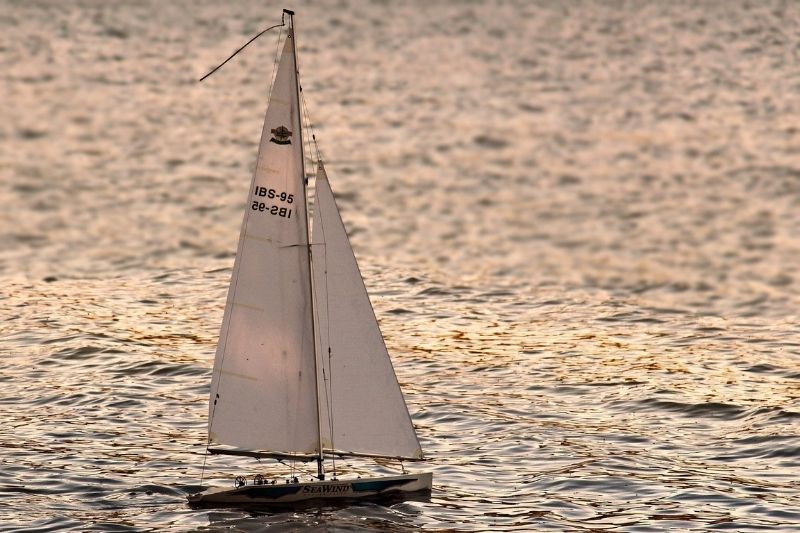What Everyone Injured In A Sailing Accident Should Know

As a sport, sailing has been practiced for thousands of years. Unlike most other team sports, sailing can be done by anyone who has an interest in it. Wherever there is water and air, there is sailing. When thinking about a sport, you don’t think of sailing; it’s just something you do in your spare time.
Over the past decade, sailing has become a more popular sport to many people. However, it is also rife with dangers that can cause significant injury. When they strike, these kinds of accidents can be devastating for those involved.
Causes Of Sailing Accidents
The world of sailing can be a safe, enjoyable pastime if you take the proper precautions. However, serious accidents can still occur whenever you are on the water. Whether you are sailing on an open body of water or a smaller lake, accidents can happen. A variety of factors can cause these accidents. The top causes of sailing accidents worldwide include:
Inattentiveness
A boat can be a very distracting place. However, it cannot be easy to remain attentive for the duration of a long sail. Sailors must be aware of many things such as weather, boating systems and must also cater to their passengers. These things can therefore make it difficult for an individual to focus on what can lead to accidents. When distracted, extreme weather changes present signs that are easily overlooked but can have disastrous consequences.
Inexperience
Although many countries require that you obtain a license to operate a sailboat, many people ignore this and jump straight into their new boots and set sail without any formal training. A wild weather change or sailing too far away from the coast can also throw even experienced sailors off guard. Moreover, new drivers will not have the necessary experience to take emergency evasive maneuvers at speed and are more prone to panic throttling, the act of speeding up out of panic.
Inclement Weather
You may have already started to see a pattern emerging of the weather being a major contributing force to sailing accidents. This is even more pronounced when sailing in locations that are more prone to violent weather changes, such as those in the North, like Toronto. Although Toronto is a fantastic place to sail, the winters can bring in snowstorms that can cause dangerous accidents that could result in you needing the services of a personal injury firm in Toronto. There is no telling when bad weather will strike. This is true for all boats, but it causes particularly bad accidents for sailboats as they cannot power away from storms or headlong into waves. This increases the likelihood that they will be toppled or that the rigging will swing wildly, causing severe injury.
Boating Accidents: What To Do
The good news is that, according to the U.S. Coast Guard, most boating accidents are non-fatal. However, even in the rare event of a fatal boating accident, it’s important to remember that survival depends primarily on your actions before and during the accident. Take some time to become familiar with some of the things you can do to ensure your safety before setting sail on your next boating trip. ilearntoboat.com offers boater education to obtain your Texas boaters license.
If you’re a regular boater, then you probably already know that there’s nothing more important than safety. If you’ve ever been involved in a boating accident, then you know too well the importance of safety and what you should do in a boating accident. The key is to act as quickly as possible.
Keep Everyone Safe
Before you can think about other higher-level actions, you must first ensure that everyone abroad has been accounted for and who might require medical attention. Any first aid should be administered for minor injuries, but anything more severe, especially those that involve the head and spine, should be left to a professional. Once you are sure that everyone is nearby, you should immediately send out a distress signal. This could be in the form of radio contact or even flares if necessary.
Collect Details
If the accident involved two or more parties, you must collect the details of all parties involved. This includes everyone on your boat, even if you already know them. It will make everything go far more smoothly if contact details are to hand when the police arrive. The primary information to collect includes names, phone numbers, and addresses. These details are usually enough for the police and insurance companies. The key is to be able to contact them for more information once the adrenaline has decreased and they can give stable answers.
Report The Accident
Depending on where you have the accident, it could be a lawful requirement to report the accident. U.S. Federal Law requires a report to be made if one or more of the following conditions are met:
- A person is killed.
- When a person needs more than just basic first aid, they are injured badly enough to require medical attention.
- Property or vessels are damaged to the tune of at least $2,000.
- There is an all-out loss of a boat or complete destruction.
- If a body went overboard and is assumed deceased.
Aftermath
Once the dust has settled, and everyone is safe, and all relevant information has been submitted, it is probably time to notify your insurance company about the accident. This step should be done as soon as possible as any delay could result in the delayed payout or potential denial of the claim. The most important thing is to notify the authorities and get evidence of doing so. You should also submit all of the details you gave to law enforcement and any other pertinent information if you collided with another boat or property.
Sailing accidents can happen on any sized boat. It doesn’t matter if it is a big racing boat or a small daysailer, all boats can capsize, and all boats can sink. The key to avoiding a sailing accident is to stay alert and aware of the ever-changing conditions. Nonetheless, if an accident is inevitable, you must remain calm and submit all relevant details to the police and insurance companies.











Leave a Reply